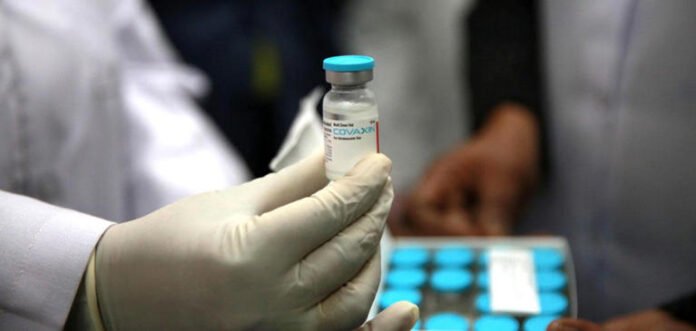In a recent study conducted by Banaras Hindu University (BHU), it has been revealed that over 30% of individuals who received the Covaxin COVID-19 vaccine reported health issues one year after vaccination. This startling statistic has raised concerns about the long-term effects of the vaccine, which was developed by Bharat Biotech in collaboration with the Indian Council of Medical Research (ICMR).
The study, spearheaded by a team of researchers from BHU’s Institute of Medical Sciences, involved a comprehensive analysis of the health status of over 5,000 Covaxin recipients. The participants were monitored for various health parameters over a year, with particular attention to any adverse effects that emerged post-vaccination. The findings indicated that a significant number of participants experienced health complications ranging from mild to severe.
According to the study, the reported health issues included chronic fatigue, joint pain, and other long-term ailments. While the majority of these cases were mild and manageable, a subset of participants experienced more severe complications that required medical intervention. The researchers emphasized the need for further investigation to understand the underlying causes of these adverse effects and to identify any potential risk factors associated with the vaccine.
Dr. Anil Kumar, the lead researcher of the study, stated, “While vaccines play a crucial role in controlling the pandemic, it is imperative to continuously monitor their long-term safety and efficacy. Our study highlights the importance of post-vaccination surveillance to identify and address any health issues that may arise over time.”
Covaxin, one of the first vaccines to be approved for emergency use in India, has been administered to millions of people since its rollout in early 2021. The vaccine was hailed for its efficacy in preventing severe COVID-19 infection and reducing hospitalization rates. However, the BHU study’s findings suggest that there may be long-term health implications for a significant portion of recipients.
In response to the study, Bharat Biotech released a statement asserting that Covaxin underwent rigorous clinical trials and extensive safety evaluations before receiving approval. The company emphasized that the vaccine’s benefits in preventing COVID-19 far outweigh the risks of adverse effects. “We are committed to transparency and will work closely with health authorities to review the findings and address any concerns,” the statement read.
The Indian government has also taken note of the BHU study. Health officials have stressed the importance of continued vigilance and monitoring of vaccine recipients to ensure their safety. The Ministry of Health and Family Welfare has announced plans to conduct additional studies and enhance surveillance mechanisms to better understand the long-term effects of all COVID-19 vaccines, including Covaxin.
Public reaction to the study has been mixed. Some individuals expressed concern over the reported health issues and called for more rigorous safety checks. Others reiterated their support for the vaccination drive, emphasizing the critical role vaccines have played in curbing the spread of the virus and saving lives.
Dr. Sushila Singh, a public health expert, commented on the situation, saying, “It is not uncommon for vaccines to have side effects, and ongoing research is essential to fully understand their impact. What is important is that we maintain a balance between addressing any potential risks and recognizing the immense benefits vaccines provide in controlling the pandemic.”
The BHU study underscores the necessity for continuous research and monitoring of COVID-19 vaccines as the global vaccination effort progresses. While the findings raise important questions about the long-term safety of Covaxin, they also highlight the broader need for robust post-vaccination surveillance systems to ensure public health safety.
As the world navigates the challenges of the COVID-19 pandemic, studies like the one conducted by BHU play a crucial role in enhancing our understanding of vaccine safety and efficacy. Ensuring transparent communication of such findings and implementing measures to mitigate any identified risks will be key to maintaining public trust and confidence in vaccination programs.

